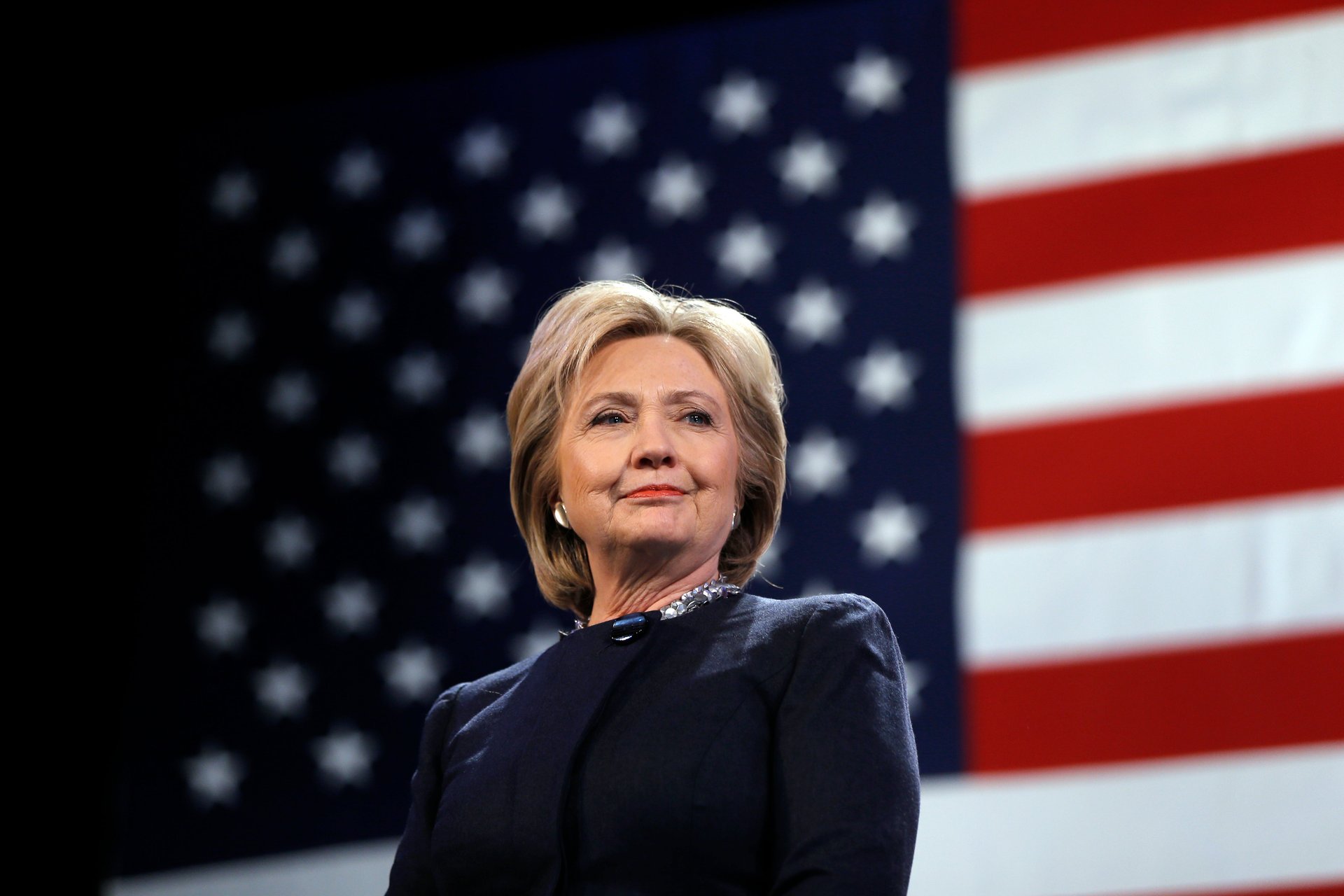Hillary Clinton’s past missteps will hamper her future Africa policy
When it comes to Africa, both Hillary Clinton and Donald Trump stand on an equal footing: neither campaign has said much about the continent. This is despite the fact that the US spends hundreds of billions of dollars every year in development and military aid across Africa. One reason for this is that both candidates have been running inward-looking campaigns, promising to deal with domestic issues ranging from taxation, manufacturing, racial justice, healthcare, infrastructure, immigration reform and national security.


When it comes to Africa, both Hillary Clinton and Donald Trump stand on an equal footing: neither campaign has said much about the continent. This is despite the fact that the US spends hundreds of billions of dollars every year in development and military aid across Africa. One reason for this is that both candidates have been running inward-looking campaigns, promising to deal with domestic issues ranging from taxation, manufacturing, racial justice, healthcare, infrastructure, immigration reform and national security.
Another reason is the Republican and Democratic parties have a tradition of bipartisanship when it comes to dealing with Africa. By studying their platforms, one notices that they both foster development aid as a tool to advance America’s economic and security interests. These initiatives include president George W. Bush’s plan for AIDS relief, alongside Obama’s commitment to bring electricity to millions of people and to enhance entrepreneurship and leadership skills through the Young Africa Leaders Initiative.
But the key reason Africa is getting less attention in the 2016 election cycle can be traced to the faltering prices of commodities which have impacted many African economies, observers say. A decade ago, when oil prices were high and the Africa Rising narrative was taking hold, there was a revived American interest in the continent says Robert Paarlberg, an adjunct professor of public policy at the Harvard Kennedy School. But “now that the US is much less dependent upon imports of petroleum, I think that has undercut the salience of Africa in the minds of the US foreign policy makers,” Paarlberg said.
Clinton was the US secretary of state during these critical times, and as the expected winner of the Nov. 8 elections, might be confronted with the repercussions that rose from how the US handled certain issues from her time in office. Among these issues is the near disintegration of South Sudan, a country whose birth the US helped midwife in 2011. The country’s civil war has left tens of thousands dead and displaced millions of people, creating a humanitarian disaster and leaders reportedly bent on amassing illegal wealth. The same applies to Libya where the American support to overthrow Gaddafi has led to regional feuds which has created a power vacuum enabling ISIS to establish itself as a force, not to mention the attack on the US mission in Benghazi that led to the killing of ambassador Christopher Stevens and three other Americans.
Clinton, who is running on the legacy of Obama, will also be faced with the choice of whether to continue using drones as an effective tool in the war on terrorism. Even though Africa receives 23% of all US foreign military financing, the Obama administration has escalated the use of clandestine operations, airstrikes, and private contractors to deal with growing Islamic militancy across the continent—creating what has been termed a “shadow war.”
Early this year, Clinton also promised to appoint a trade prosecutor, who would protect US workers against unfair global policies. But the Democratic nominee will have to balance domestic protection with efforts to bolster African economic development through increased bilateral trade. As of 2015, the United States’ two-way trade with Sub-Saharan Africa was worth $37 billion, much of it in extractive resources and traded as part of the African Growth and Opportunity Act, which came into effect in 2000. But the rising influence of China, the continent’s largest trading partner, undermines this relationship. For many African leaders, America’s so-called commitment to democracy doesn’t compare to China’s no-strings-attached loans, which has been criticized for turning a blind eye towards human rights abuses in countries such as oil-rich South Sudan and diamond-rich Zimbabwe.
As president, Clinton will also have to deal with the ethical problems associated with the Clinton Foundation. Former president Bill Clinton has said that he will step down if his wife becomes president, and the foundation will stop accepting money from foreign and corporate entities. The Associated Press recently reported that Clinton used her leverage as secretary of state to raise money for the family charity. Future events like these could create a backlash for Clinton, but her presidency shouldn’t also undermine the foundation’s work to help African farmers or strengthen health systems.
Donald Trump hasn’t so much as criticized Clinton’s alleged past failures as present a clear alternative. On his main foreign policy speech, Trump didn’t mention Africa at all, except for mispronouncing Tanzania while talking about the 1998 US embassy bombings there. He has previously boasted about his relationship with Nelson Mandela, while his sons’ hunting trips to Zimbabwe have faced criticism from animal rights organizations.
But if she is any more adept at foreign policy, or Africa for that matter, Clinton hasn’t been showing it. Hillary has only been making references to her experiences as a tested alternative to Trump. Her campaign has also adopted the same generic language on foreign policy as Donald’s, which focuses on defeating ISIS and standing up to Russia and China. But in Africa, she will have to beat Obama, who visited the continent a record four times and became the first American president to speak at the African Union.